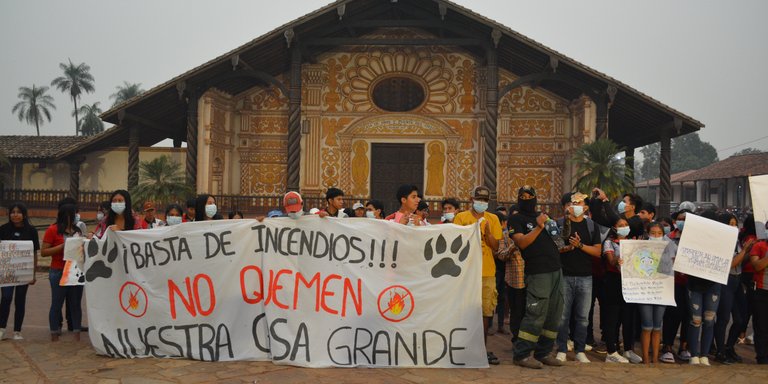.jpg/_jcr_content/renditions/original./2025%20RISK%20Award%20Bolivia%20Update%201%20(4).jpg)
Indigenous youth leading change
Progress update on the RISK Award 2025 project in Bolivia
November 2025
properties.trackTitle
properties.trackSubtitle
.jpg/_jcr_content/renditions/original./2025%20RISK%20Award%20Bolivia%20Update%201%20(5).jpg)
Transforming schools into safer and more resilient spaces
.jpg/_jcr_content/renditions/original./2025%20RISK%20Award%20Bolivia%20Update%201%20(2).jpg)
.jpg/_jcr_content/renditions/original./2025%20RISK%20Award%20Bolivia%20Update%201%20(7).jpg)
Preparing students for disasters and teaching environmental care
.jpg/_jcr_content/renditions/original./2025%20RISK%20Award%20Bolivia%20Update%201%20(3).jpg)
The project’s Educational Forest approach is taking shape through the creation of biocultural learning spaces in three pilot communities — Makanaté, Cosorio Palestina, and Palmarito de la Frontera — where students and elders work together to restore damaged forest areas, learn about biodiversity, and cultivate long-term environmental stewardship.
Progress is also being made on integrating the eight schools, selected for the project into the local early warning system. In cooperation with the Municipal Government of Concepción, two drones will be purchased in order to monitor and assess bushfire risks. This partnership ensures a reliable monitoring capacity for the warning system.
.jpg/_jcr_content/renditions/original./2025%20RISK%20Award%20Bolivia%20Update%201%20(1).jpg)
Empowering indigenous youth to defend their land and future
Across the Chiquitano Territory, indigenous youths are stepping into leadership roles. Through the youth organization JUMA (Youth United for the Environment), the project supports young people in documenting environmental challenges, sharing their perspectives, and engaging their communities in climate action. Equipped with smartphones and digital training, JUMA members are now producing social media campaigns on water protection and forest conservation, amplifying local voices and strengthening youth-led environmental advocacy.
JUMA is also using creative formats to reach younger audiences. With guidance from a theatre instructor, the group co-created a theatre play on disaster risk reduction, which has already been performed in several communities. In parallel, six representatives took part in the Local Conference of Youth (LCOY) Bolivia 2025, contributing to a youth declaration ahead of COP30 and strengthening their role as advocates for climate justice and the protection of their ancestral lands.
.jpg/_jcr_content/renditions/crop-16x9-1280.jpg./crop-16x9-1280.jpg)
Looking Ahead
In the coming months, ChildFund Bolivia and its partners will deepen their collaboration with local authorities and schools to ensure long-term impact. Work will continue on installing the solar water systems in Monteverde and Río Blanco and on delivering WASH and DRR workshops using the “Guardians of the Forest” backpack. The eight Emergency Preparedness Plans will be finalised and activated with trained school-community brigades, while students develop their own nature-based solutions in a project-wide contest. At the same time, the schools will be integrated into the municipal early warning network, supported by drone-based monitoring, and youth advocates will advance their campaigns and prepare a policy brief for local and national decision-makers.
Interest in the project is also growing beyond the current intervention area, with additional communities expressing their wish to join future activities. With this strong collaboration and expanding local engagement, the project is already demonstrating how indigenous children and youths can drive resilience from the ground up — protecting not only their schools but also their forests, water, and future.
Further information


.JPG/_jcr_content/renditions/crop-16x9-1280.jpg./crop-16x9-1280.jpg)


